The food that cars want to eat is definitely not the food we eat on weekdays. The so-called "food" of cars actually refers to gasoline.
Gasoline, as the fuel of automobile engines, is just like the food we eat, with different quality, level, price and even "nutritional ingredients. So as an ordinary consumer, what do we need to pay attention to when we refuel everyday, what do all kinds of labels mean, and what will happen if we add wrong labels? What exactly do you mean by oil products? Today, the master will give a detailed lecture.
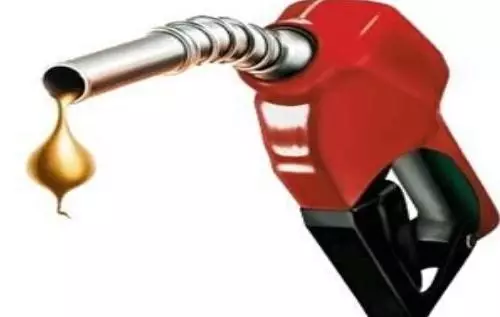
About gasoline label
Car gasoline that can be added to the market is divided into No. 90, No. 93 and No. 97, and there will be No. 89, No. 92 and No. 95 in Beijing and Shanghai, which are the so-called gasoline labels.
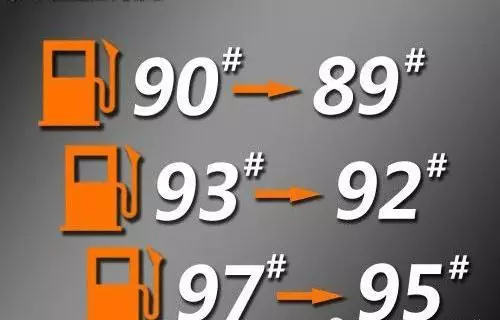
What does gasoline Mark mean?
Some people think that the oil price of no.97 is good, while the oil price of no.93 is poor. In fact, this is not the case. The label of gasoline represents the anti-knock property of gasoline (the higher the octane number, the better the anti-knock effect). The higher the label, the stronger the anti-knock property of gasoline, it has no direct relationship with the quality of oil products.
What is the knock?
To put it bluntly, the inflammable mixture in the cylinder of the engine did not bear the pressure in the cylinder and burned itself before ignition. This is not a good thing. The occurrence of the knock will affect the crank connecting rod, multiple engine components such as cylinder valves cause damage.
Why does it knock?
The combustion principle of the engine is simple. If you have a deeper understanding, you will find that it is actually a very precise and complicated project, and no mistakes are allowed. In addition to the knock caused by low fuel octane number, there are many reasons that can cause engine knock, which is limited in space. Today, the master will first talk about the reason of low fuel octane number.
Low fuel octane number leads to knock:
The reason for knocking is that inflammable mixture did not bear the pressure in the cylinder and was Compression ignited before ignition. The reason for this situation is not that the engine has a problem, but that the gasoline has a low octane number. What determines the pressure of inflammable mixture is the cylinder compression ratio (the ratio between the minimum working bolume of the cylinder and the top stop point of the piston stroke), that is to say, the higher the compression ratio of your car, the greater the pressure inflammable mixture needs to bear, in this way, you need to add higher grade gasoline. The following table lists the corresponding compression ratio and gasoline label, and quickly learn about the compression ratio of your own car to avoid adding wrong oil.
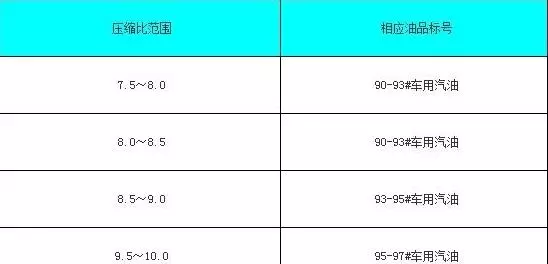
If you accidentally add gasoline of other labels, what will be the impact?
First of all, it should be divided into two situations: one is that your car should add high-grade gasoline, and as a result, it adds low-grade gasoline. Another situation is that your car was originally added with low-grade gasoline, but this time it was added with high-grade gasoline. The consequences caused by these two situations are completely different, so the master should speak separately.
The first type: added lower (97 plus 93)
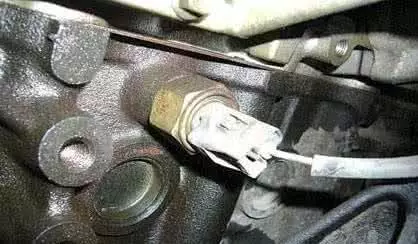
Gasoline below the required level is added, because low-grade gasoline has low octane number and low anti-explosion capability, and the car compression ratio requiring high-grade gasoline must be high, therefore, in this case, the engine may knock. However, in order to prevent this problem, cars now have installed a device called "knock sensor" on the engine. Its function is to prevent knock. By detecting the information in the cylinder and then sending it to the engine ECU, the engine ECU receives the signal and finally successfully prevents the occurrence of knock by controlling the fuel injection, ignition and intake. Therefore, it is OK to add 93 several times, which will not cause damage to the engine, but it cannot be added frequently. Too much computer control will have a great impact on the power, which will do more harm than good.
The second type: increased (93 plus 97)
This really has no effect at all. You won't get any benefits because you add more expensive oil (like oil products, the power will not be affected). Of course, there is no harm, if you have more money, add it.
About oil products
Certainly many car friends have heard such remarks: "State-owned enterprises have better oil products than private enterprises, and foreign companies have better oil products than state-owned enterprises". What is the so-called "oil product" passed down by everyone? What's the matter with good oil products and poor oil products?
How big is the gap between oil products?

First of all, everyone should know that the so-called oil level does exist, but because the national standard is there, any enterprise must "produce according to law", therefore, there is not much difference between oil products (domestic). The poor oil products in the eyes of ordinary people are often linked to the "mixed water" and "impurities". The Master declares here that even if the poor oil does not exist, these things will not exist, because all fuel oil is deeply filtered, including fuel injection gun, there are several layers of high-precision filters, and this is not enough, including gasoline pump on our car, there are two layers of filters to filter gasoline. Finally, the gasoline sprayed from the fuel injection nozzle in the oil supply pipeline must be free of impurities. You can rest assured of this, so the so-called oil products (domestic) there is no need to be so entangled.
In this case, why is high-grade gasoline so expensive than low-grade gasoline?
Although the oil products are the same, the higher price of high-grade gasoline is still reasonable, because high-grade gasoline needs higher-purity octane, and the increase of octane number needs more refining methods, in this way, compared with low-octane gasoline, the cost is higher, and it is natural that it is more expensive than low-grade gasoline.
How can oil products be distinguished?
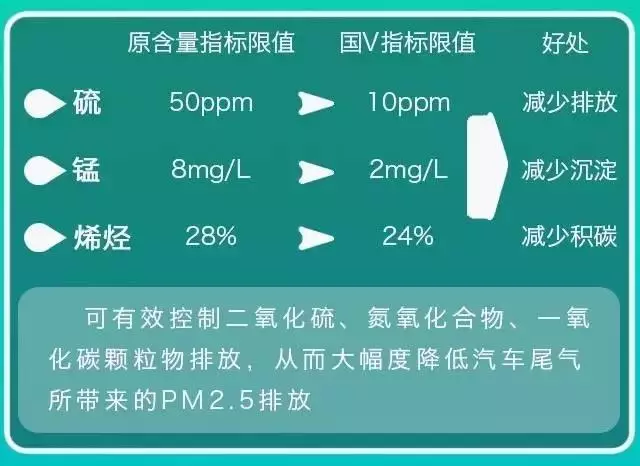
In addition to Octane, gasoline usually contains manganese, sulfur, olefin and other components. There is no need to say much about the importance of octane in these ingredients, but the three other than it are not good things. Among them, olefin is one of the main culprits of Carbon deposit in the engine, manganese will precipitate after combustion, and sulfur content has a great influence on the life of Catalyst, which is also an important cause of exhaust particles; Gum will block the fuel injector; distillation range and vapor pressure determine the service performance of gasoline; Olefin will form photochemistry pollution; Manganese content is an environmental killer, which greatly damages the automobile exhaust aftertreatment system. Therefore, the key to determine the quality of oil products is the sulfur content. If the sulfur content in gasoline is very large, it is the defective oil with poor oil products.